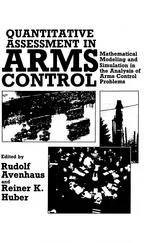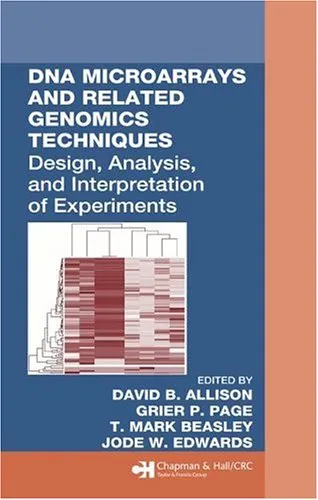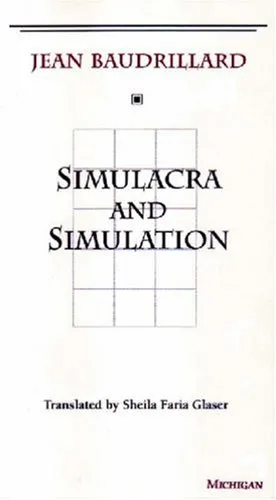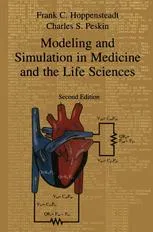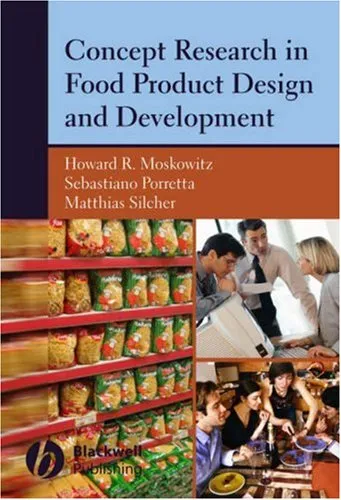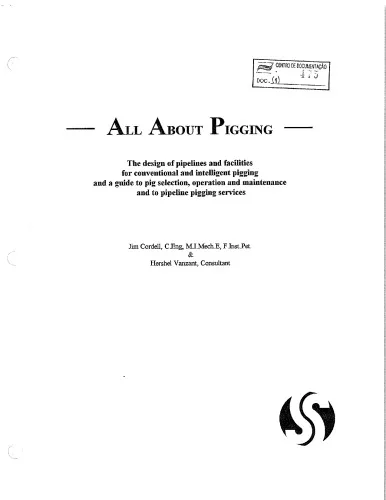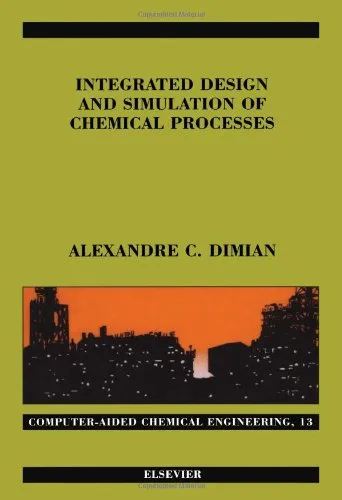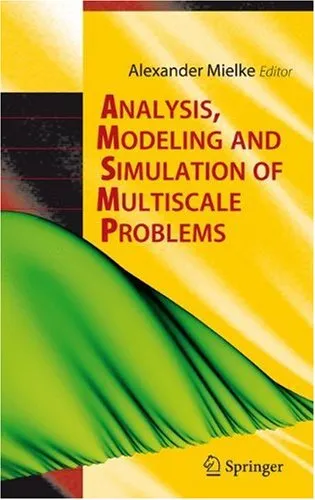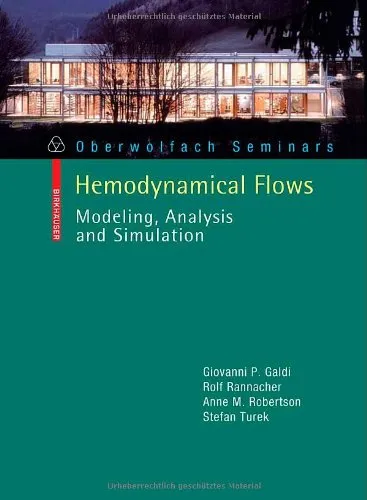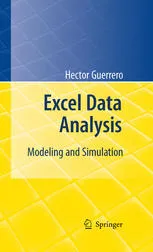Quantitative Assessment in Arms Control: Mathematical Modeling and Simulation in the Analysis of Arms Control Problems
4.8
بر اساس نظر کاربران

شما میتونید سوالاتتون در باره کتاب رو از هوش مصنوعیش بعد از ورود بپرسید
هر دانلود یا پرسش از هوش مصنوعی 2 امتیاز لازم دارد، برای بدست آوردن امتیاز رایگان، به صفحه ی راهنمای امتیازات سر بزنید و یک سری کار ارزشمند انجام بدینکتاب های مرتبط:
مقدمه کتاب: Quantitative Assessment in Arms Control
کتاب "Quantitative Assessment in Arms Control: Mathematical Modeling and Simulation in the Analysis of Arms Control Problems" یکی از منابع اساسی و جامع در زمینه تجزیه و تحلیل مسائل کنترل تسلیحات با استفاده از مدلسازی ریاضی و شبیهسازی است. این کتاب به قلم رودولف آونهاوس و رینر ک. هابر نوشته شده و به وسیله این دو نویسنده برجسته ویرایش شده است.
خلاصهای از کتاب
در دنیای کنونی، کنترل تسلیحات به عنوان یکی از اصلیترین مسائل سیاسی و امنیتی بینالمللی مطرح است. کتاب حاضر با استفاده از رویکردهای کمی و مدلسازی ریاضی به بررسی و تحلیل مسائل پیچیده کنترلی میپردازد. تمرکز اصلی آن بر توسعه ابزارهای تحلیلی جهت فهم بهتر تهدیدات و طراحی تدابیر کنترلی است. این کتاب با بهرهگیری از شبیهسازیهای کامپیوتری به تحلیل سناریوهای مختلف میپردازد تا بتوان از آنها برای کاهش خطرات امنیتی و برقراری ثبات جهانی استفاده کرد.
نکات کلیدی
- اهمیت مدلسازی ریاضی در تحلیل مسائل کنترل تسلیحات و تصمیمگیریهای استراتژیک.
- نقش شبیهسازی در ایجاد سناریوهای فرضی و آزمایش اثربخشی تدابیر کنترلی پیشنهادی.
- تبیین روشهای کمی برای تحلیل دادههای مربوط به کنترل تسلیحات و ایجاد پیشبینیهای دقیقتر.
- آموزش کاربرد تکنیکهای پیشرفته در مدلسازی و شبیهسازی برای پژوهشگران و متخصصان حوزه امنیت بینالمللی.
جملات معروف از کتاب
درک صحیح از ابزارهای کمی و مدلسازی میتواند بهبود قابل توجهی در فرآیند تصمیمگیریهای سخت امنیتی به ارمغان بیاورد.
مدلهای ریاضی میتوانند به عنوان پلی میان تئوریهای پیچیده و کاربردهای عملی در زمینه تسلیحات عمل کنند.
چرا این کتاب مهم است
این کتاب به دلیل رویکرد عملی و کاربردیاش در زمینه یکی از حساسترین مسائل جهانی، کنترل تسلیحات هستهای، بسیار مهم است. همچنین، به دلیل استفاده از تکنولوژیهای پیشرفته شبیهسازی و مدلسازی، ابزارهای جدیدی برای تحلیل و پیشبینی تهدیدات امنیتی فراهم میکند. مخاطبان اصلی این کتاب محققان و دانشجویان حوزههای سیاستگذاری، علوم سیاسی، و روابط بینالملل هستند که به دنبال افزایش دانش و مهارتهای خود در تحلیل مسائل پیچیده امنیتی میباشند. این اثر همچنین برای تصمیمگیرندگان سیاستهای دفاعی و امنیتی میتواند به عنوان یک منبع قابل اعتماد و معتبر مورد استفاده قرار گیرد.
Quantitative Assessment in Arms Control: Mathematical Modeling and Simulation in the Analysis of Arms Control Problems is a seminal work that addresses the complexities and nuances of arms control through a rigorous mathematical lens. Edited by Rudolf Avenhaus and Reiner K. Huber, this book presents a comprehensive framework for understanding and navigating the challenging landscape of international arms control agreements.
Detailed Summary of the Book
The book commences with an exploration of the fundamental principles of arms control, diving into both historical context and modern-day challenges. It is an academically robust endeavor that seeks to provide readers with insights into how mathematical modeling and simulation can enhance the efficacy and reliability of arms control negotiations and verifications. By employing quantitative methods, the authors offer a new perspective on traditional arms control metrics.
Subsequent chapters delve into the specifics of mathematical methodologies employed in the analysis of arms control problems. These sections meticulously cover topics such as game theory, statistical analysis, and probability assessments. The book posits that by applying these mathematical techniques, policy-makers and analysts can better anticipate and mitigate potential risks associated with nuclear proliferation and disarmament.
Furthermore, this book showcases a series of case studies that exemplify the application of these quantitative methods in real-world scenarios. By drawing on historical and hypothetical examples, the authors illuminate the practical applicability and potential limitations of these techniques, providing a balanced account that is both thorough and accessible.
Key Takeaways
- The importance of quantitative analysis in the development and verification of arms control agreements.
- How mathematical modeling can identify and reduce uncertainties in arms control processes.
- The role of game theory and statistical methods in simulating arms control scenarios.
- A nuanced understanding of the historical context and evolution of arms control policies.
Famous Quotes from the Book
"The pursuit of arms control is not merely a political or military endeavor, but one that requires a rigorous analytical framework to navigate the complex interplay of international relations."
"Mathematical models serve as essential tools in envisioning and constructing a world where arms control is not only achievable but sustainable."
Why This Book Matters
The significance of "Quantitative Assessment in Arms Control" extends beyond its scholarly contributions; it represents a bridge between theoretical analysis and practical policy-making. At a time when global uncertainty and tensions often overshadow rational discourse, this book provides a beacon for those seeking to develop pragmatic and informed approaches to arms control.
For academics, practitioners, and policy-makers, the book serves as both a guide and a resource that enriches their understanding of how quantitative methods can be utilized to tackle some of the most pressing challenges in arms control today. It equips readers with the necessary tools to critically assess current strategies and to innovate new solutions that reflect the dynamic nature of international security.
Ultimately, this book asserts that integrating mathematical analysis into arms control discussions not only enhances intellectual rigor but also contributes to global peace efforts. Through this lens, the work of Avenhaus and Huber is not just relevant—it is essential.
دانلود رایگان مستقیم
شما میتونید سوالاتتون در باره کتاب رو از هوش مصنوعیش بعد از ورود بپرسید
دسترسی به کتابها از طریق پلتفرمهای قانونی و کتابخانههای عمومی نه تنها از حقوق نویسندگان و ناشران حمایت میکند، بلکه به پایداری فرهنگ کتابخوانی نیز کمک میرساند. پیش از دانلود، لحظهای به بررسی این گزینهها فکر کنید.
این کتاب رو در پلتفرم های دیگه ببینید
WorldCat به شما کمک میکنه تا کتاب ها رو در کتابخانه های سراسر دنیا پیدا کنید
امتیازها، نظرات تخصصی و صحبت ها درباره کتاب را در Goodreads ببینید
کتابهای کمیاب یا دست دوم را در AbeBooks پیدا کنید و بخرید
1331
بازدید4.8
امتیاز0
نظر98%
رضایتنظرات:
4.8
بر اساس 0 نظر کاربران
Questions & Answers
Ask questions about this book or help others by answering
No questions yet. Be the first to ask!
